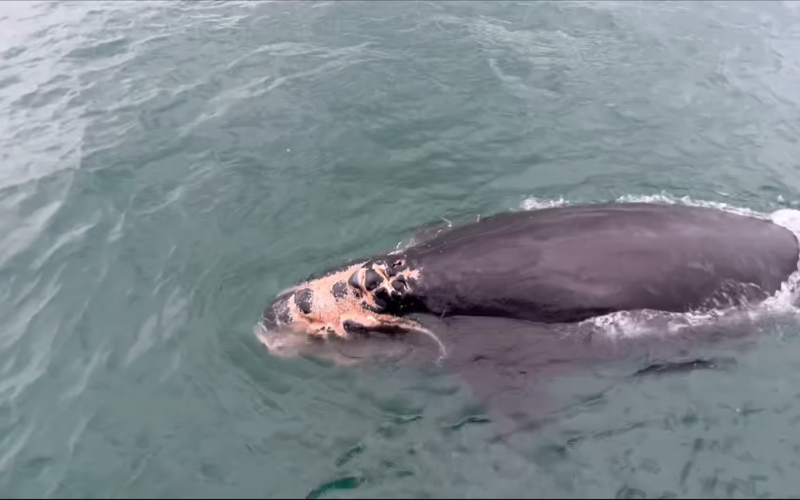This column often deals with the legal rights of commercial mariners and vessel owners. These two sectors tend to be well represented legally, between Jones Act attorneys and attorneys for P & I clubs.
However, it could be worth looking at the legal rights of a lesser-known group, one that lives in the very waters our commercial vessels use. Earlier this year in January, a dead right whale was found on the shores of Martha’s Vineyard.
The National Oceanic and Atmospheric Administration (NOAA) considers the North Atlantic right whale one of the world’s most endangered large whale species. While a single whale washing up on a beach may not seem like cause for a national crisis, the overall population of the species is small. According to recent estimates, only around 350 individual whales remain.
This is not a new issue in the maritime industry. The existence of speed restrictions in certain designated areas evidences awareness of the need to protect right whales. The International Fund for Animal Welfare estimates that nine out of ten North Atlantic right whale deaths are caused by ship strikes or entanglements.
Sadly, there is no shortage of gear out there that can lead to entanglements, given the international nature of commercial fishing. It could be difficult to control when a net or line will fail and become a risk to wildlife. But the simple measure of reducing vessel speed is something we do have direct control over.
Most vessels over 65' are requested to reduce speed to 10 knots or less while passing through certain designated areas (Seasonal Management Areas) on the U.S. East Coast between November and July. Just as interactions between cars and pedestrians can be less lethal at lower speeds, the same holds true for ships and cetaceans.
NOAA has a unit that enforces these speed restrictions. In 53 cases spanning from 2022 to 2023, NOAA imposed fines of $882,806. Enforcement measures don’t rely solely on AIS (Automatic Identification Systems). NOAA also uses portable radar units and patrols Seasonal Management Areas.
The protection of whales depends in large part on the good will and responsibility of vessel operators. Fortunately for the whales, the vast majority of commercial mariners practice compassionate stewardship toward these gentle giants. The alternative is sad, in the form of mortal damage that a bulbous bow or bronze propeller can inflict upon a slow-moving mammal that had no clue a vessel was bearing down on it at 20 knots.
NOAA has several contact numbers in this regard. Violations can be reported on the Law Enforcement Hotline, at 800-853-1964.
Ref: NOAA, Fisheries Navigator Oct. 2023, Enforcement Continues To Help Protect North Atlantic Right Whales; IFAW




